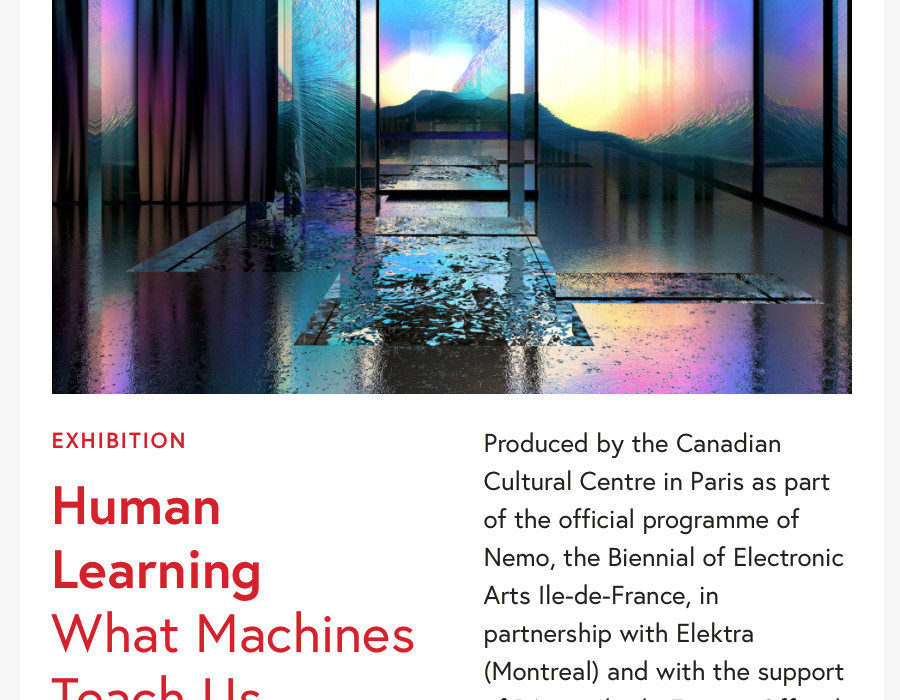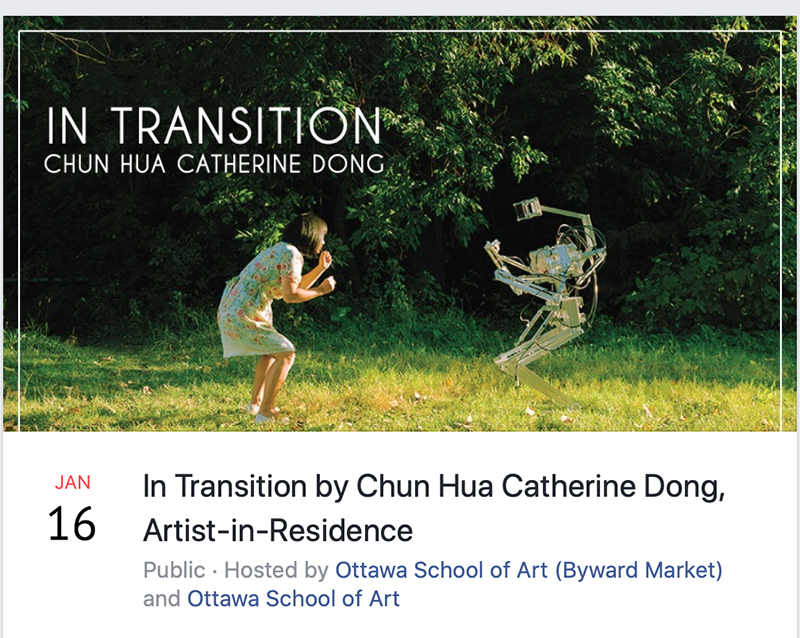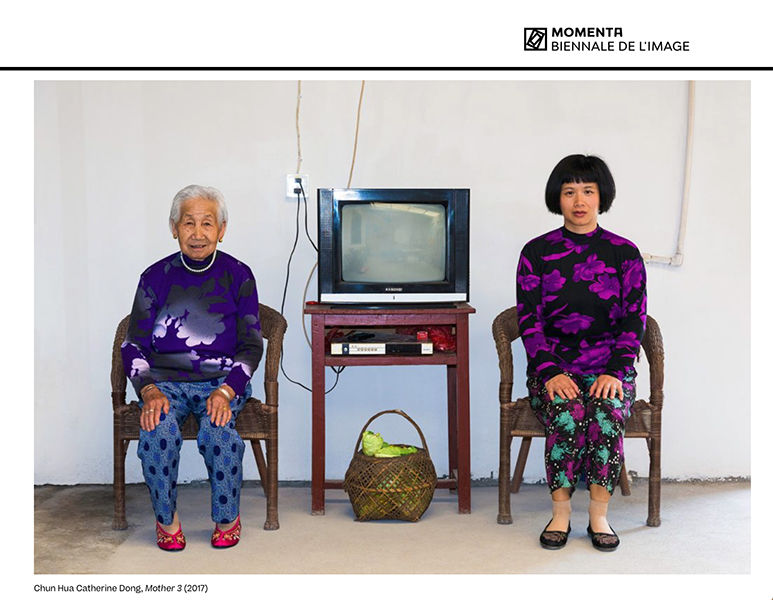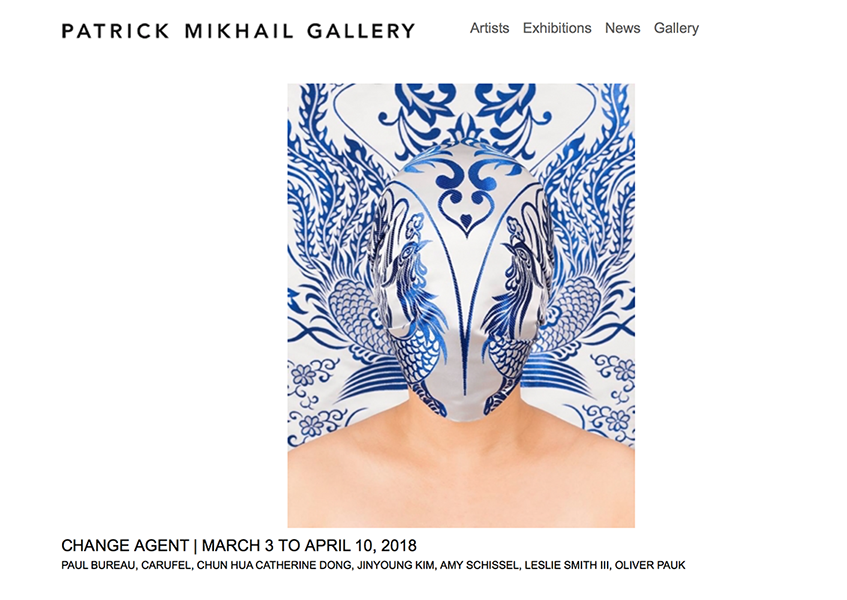Group Exhibition – Human Learning. What Machines Teach Us
Exhibition: Human Learning. What Machines Teach Us
Date: February 05th, 2020 – April 17th, 2020
Opening: February 4th, 2020 6-8pm
Gallery: Centre Culturel Canadien, Paris
Address: 130 rue du Faubourg Saint-Honoré, Paris
Produced by the Canadian Cultural Centre in Paris as part of the official programme of Nemo, the Biennial of Electronic Arts Ile-de-France, in partnership with Elektra (Montreal) and with the support of Région Ile-de-France.
Human Learning. What Machines Teach Us is an exhibition that documents the world using the technologies that shape it. The works in the exhibition feature a large variety of styles: interactive devices that make us learn their playabilities, generative installations whose processes are entirely autonomous and digital creations made out of digital forms.
The concept of artificial intelligence emerged in the 1950s. It served as a vehicle for an imaginary world immediately adopted by science-fiction writers who endowed machines with the ability to “think”. In the 1980s, the idea that machines could themselves learn, by deduction, appeared. This is known as “machine learning”. Finally, since the turn of the millennium, the term “deep learning” has been used for the processing of vast quantities of data by computers.
We have taught everything to machines and continue to supply them so that they pursue the “desire” for autonomy we would like to grant them. Isn’t it time that we started thinking that we, too, learn from them by observing their specificities or qualities? If there is one community that observes the world to give us its interpretations of its transformations, it is the artistic community.
Artists have always made use of the tools and materials of their times. Thus, more and more of them are turning to the creative potential of digital technologies, which are also used by researchers in their laboratories. In doing so, they accept what the machines offer them while adding an element of unpredictability to their creations. Sometimes, they distance themselves from their works, which run so that their modes of actions may be observed better. Machines or robots are also the subjects of photographs or films that other artists produce to encourage new forms of empathy in us. It is not an application or a service that does not work as soon as it opens. From the special-effect filters of mass-market software to the networks of artificial neurones that artists share with researchers. They both learn and appropriate these technologies by rubbing shoulders with them.
We have a certain proximity with the works that emerge from the use and/or observation of the technologies that shape our relationship to the world, to others and to ourselves. Recognizing the technologies of our daily lives in an artistic context makes us envisage them differently. Knowing that it is through contact with others that we build ourselves, it is about time to think about the “mechanical” other we increasingly frequent without being too aware of it. Dedicating an exhibition to machines and ideas or the resulting aesthetics amounts to accepting their teachings.
Works by Matthew Biederman, Emilie Brout & Maxime Marion, Grégory Chatonsky, Douglas Coupland, Chun Hua Catherine Dong, Emilie Gervais, Sabrina Ratté, David Rokeby, Justine Emard, Louis-Philippe Rondeau, Samuel St-Aubin, Skawennati, Xavier Snelgrove & Mattie Tesfaldet, with an exterior installation by Olivier Ratsi.
Guest curators: Dominique Moulon and Alain Thibault
Associated curator: Catherine Bédard
Exceptionally open on Saturday April 4, from 10am to 6pm for Paris Art Fair.
For more info about the work, please visit here
For more info about the exhibition, please visit hereand here





